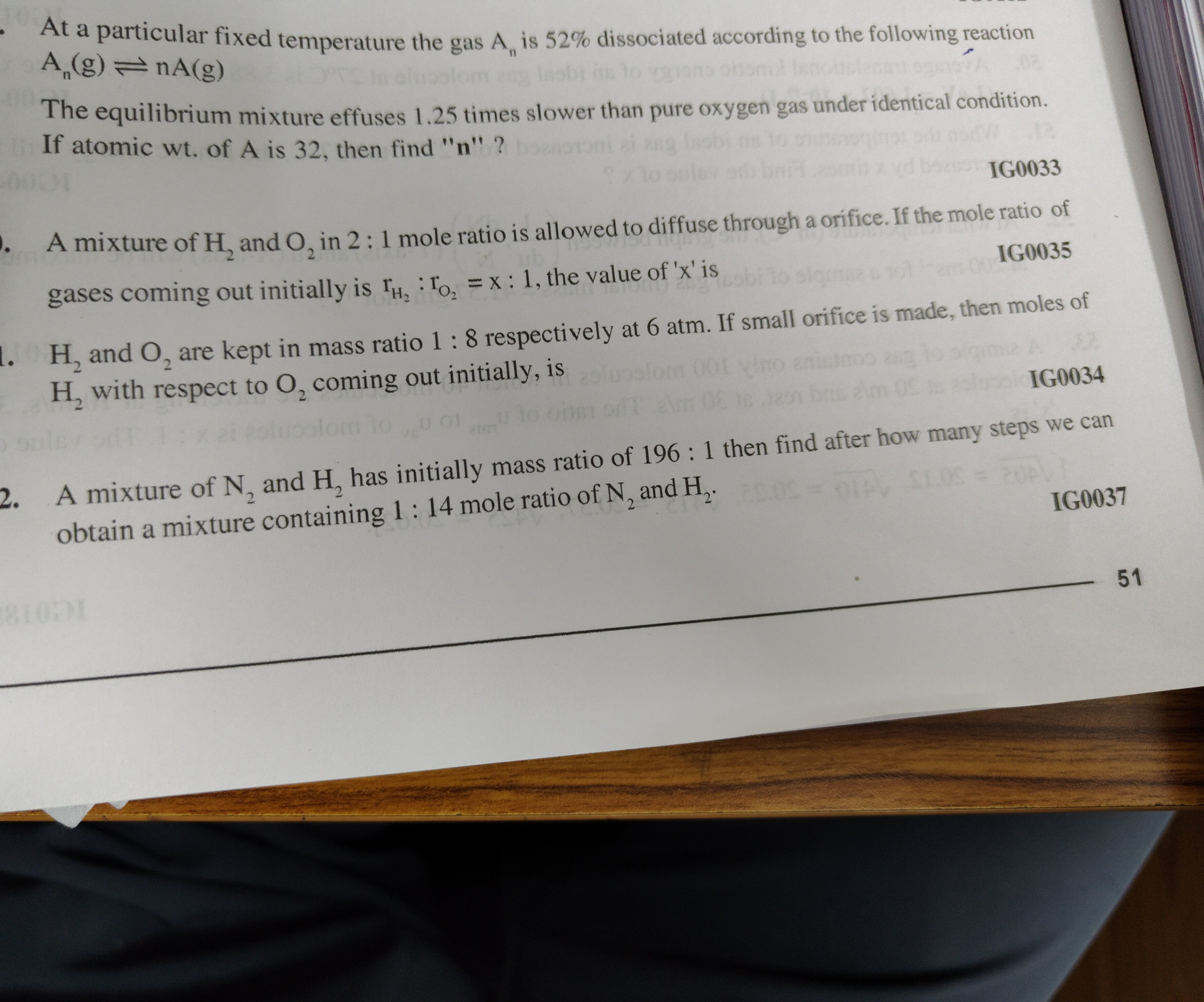Question
Question: At a particular fixed temperature the gas $A_n$ is 52% dissociated according to the following reacti...
At a particular fixed temperature the gas An is 52% dissociated according to the following reaction An(g)⇌nA(g) The equilibrium mixture effuses 1.25 times slower than pure oxygen gas under identical condition. If atomic wt. of A is 32, then find "n" ?

4
3
5
2
4
Solution
-
Relate Effusion Rate and Molar Mass: According to Graham's Law of Diffusion, the rate of effusion (R) of a gas is inversely proportional to the square root of its molar mass (M). R2R1=M1M2 Let Rmixture and Mmixture be the rate and molar mass of the equilibrium mixture, and RO2 and MO2 be for pure oxygen. We are given that the mixture effuses 1.25 times slower than pure oxygen, so Rmixture=1.25RO2. RO2Rmixture=1.251=54
-
Calculate Molar Mass of the Equilibrium Mixture: 54=MmixtureMO2 Squaring both sides: (54)2=2516=MmixtureMO2 The molar mass of oxygen (O2) is MO2=32 g/mol. Mmixture=MO2×1625=32 g/mol×1625=50 g/mol
-
Relate Molar Mass to Degree of Dissociation: Let the initial number of moles of An be 1. The reaction is: An(g)⇌nA(g) Given that An is 52% dissociated, the degree of dissociation (α) is 0.52. Initial moles: 1 | 0 Change: -α | +nα Equilibrium moles: (1−α) | nα At equilibrium, moles of An=1−0.52=0.48 mol. Moles of A=0.52n mol. Total moles at equilibrium = (1−α)+nα=0.48+0.52n.
The molar mass of An is MAn=n×(atomic wt. of A)=n×32. The total mass of the gas mixture remains constant (conservation of mass). Assuming 1 mole of An initially, the total mass is 1×MAn=32n. The observed molar mass of the mixture is given by: Mmixture=Total moles at equilibriumTotal mass 50=0.48+0.52n32n
-
Solve for 'n': 50(0.48+0.52n)=32n 24+26n=32n 24=32n−26n 24=6n n=624=4
